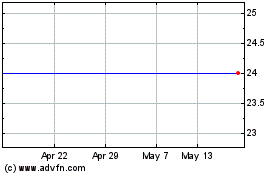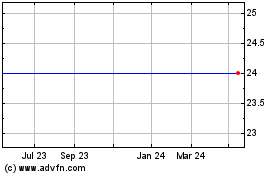Cambridge Antibody - Re CAT Clinical Data
November 09 1998 - 2:31AM
UK Regulatory
RNS No 3723v
CAMBRIDGE ANTIBODY TECHNOLOGY GROUP
9th November 1998
IMPRESSIVE CLINICAL DATA WITH CAT/BASF HUMAN ANTIBODY IN RHEUMATOID
ARTHRITIS
Melbourn, UK. Significant new data from clinical trials with D2E7, a fully
human monoclonal antibody which neutralises TNFalpha, developed by CAT in
conjunction with BASF Pharma, are presented today at the American College of
Rheumatology in San Diego, California.
The key points from these trials which involved over 140 patients with
rheumatoid arthritis are as follows:
a) D2E7 was both safe and effective in reducing disease activity when
administered either by the intravenous (iv) or self-injected subcutaneous
route. Both routes of administration achieved comparable results
b) up to 80 per cent of patients achieved a clinically significant response
during chronic treatment of up to six months (intravenous) or three months
(subcutaneous)
c) clinical response was maintained during chronic administration
d) chronic treatment was given weekly subcutaneously, and at two weekly
intervals or longer (depending on the response) in the iv study
e) a dose response for D2E7 was observed after intravenous dosing with 0.5
mg/kg being the minimum effective dose. Doses between 1 and 10 mg/kg given
iv yielded similar results.
David Glover, CAT's Medical Director, said: "This is a clear demonstration of
a clinically significant benefit from the first of a new generation of fully
human monoclonal antibodies to enter clinical trials. It is an important
validation of CAT's ability to develop human antibody drugs."
BASF Pharma/Knoll are currently running clinical phase I and II trials in the
US and Europe.
For further information contact:
Cambridge Antibody Technology Tel: +44 (0) 1763 263233
David Chiswell, Chief Executive Officer
John Aston, Finance Director
Dr David Glover, Medical Director
HCC.De Facto Tel: +44 (0) 171 496 3300
City/Financial, Nicola How
Trade/Scientific, Nikul Odedra
Notes
TNFalpha
TNFalpha is a pro-inflammatory cytokine found in the human body. It is
believed to increase tissue damage in inflammatory diseases such as rheumatoid
arthritis.
D2E7
D2E7 is a fully human anti-TNFalpha neutralising monoclonal antibody developed
by CAT in conjunction with BASF (Pharma). Results from three studies in
patients with chronic rheumatoid arthritis are being presented at the ACR
meeting:
- a double-blind, placebo controlled, single dose intravenous (iv) study in
120 patients
- a follow on open label chronic iv dosing study for up to 12 months in 120
patients
- a double-blind, placebo controlled, weekly subcutaneous dosing study in 24
patients
Three further presentations describe the creation of D2E7 using CAT's phage
antibody technology, the results with D2E7 in a transgenic mouse model of
polyarthritis and the effects of D2E7 upon oxidative burst in inflammatory
white blood cells from patients with rheumatoid arthritis.
DAS & ACR
DAS (Disease Activity Score) and ACR20 (American College of Rheumatology
preliminary definition of improvement) are each measures of disease activity
for rheumatoid arthritis. Whilst the two are different they each take into
account various measures of disease activity such as tender joint count,
swollen joint count, assessment of pain, assessment of general health,
assessment of disease activity and rate of settlement of red blood cells out
of blood.
CAT/BASF (Pharma)
In collaboration with BASF Pharma, CAT isolated and optimised an antibody
against TNFalpha. BASF Pharma are developing and commercialising the antibody
and are responsible for clinical trials. CAT receives milestones and
royalties from BASF. In addition, CAT has a collaborative deal with BASF
Pharma/Genetics Institute to develop an anti-IL-12 (Interleukin 12) fully
human monoclonal antibody for the treatment of inflammatory disorders; this
antibody is currently in the pre-clinical phase. Anti-IL-12 antibodies could
have application in a number of severe autoimmune and inflammatory diseases.
CAT
CAT is a UK biotechnology company using its proprietary technologies in fully
human monoclonal antibodies for drug discovery and drug development. CAT is
based in Melbourn, 10 miles south of Cambridge, England, and currently employs
over 140 people. In March 1997, CAT completed its initial public offering and
listing on the London Stock Exchange, raising approximately #41 million.
CAT has a world-leading platform technology for rapidly isolating fully human
monoclonal antibodies using phage display systems. CAT has an extensive phage
display antibody library, currently incorporating around 100 billion distinct
antibodies. This library forms the basis for the company's strategy to develop
a portfolio of clinical development programmes and for discovering new drug
leads using functional genomics. The first two antibody products developed by
CAT started clinical trials in 1997, in inflammation and fibrosis.
CAT has a number of license and collaborative agreements in place with
pharmaceutical and biotechnology companies including: Eli Lilly, Pfizer, BASF
Pharma, Genentech, ICOS Corporation, Genetics Institute/BASF Pharma,
Mitsubishi Chemical, Progenitor and Obesys.
END
MSCUBGBUGBGRGBQ
Catco Reinsurance Opport... (LSE:CAT)
Historical Stock Chart
From Jun 2024 to Jul 2024

Catco Reinsurance Opport... (LSE:CAT)
Historical Stock Chart
From Jul 2023 to Jul 2024
